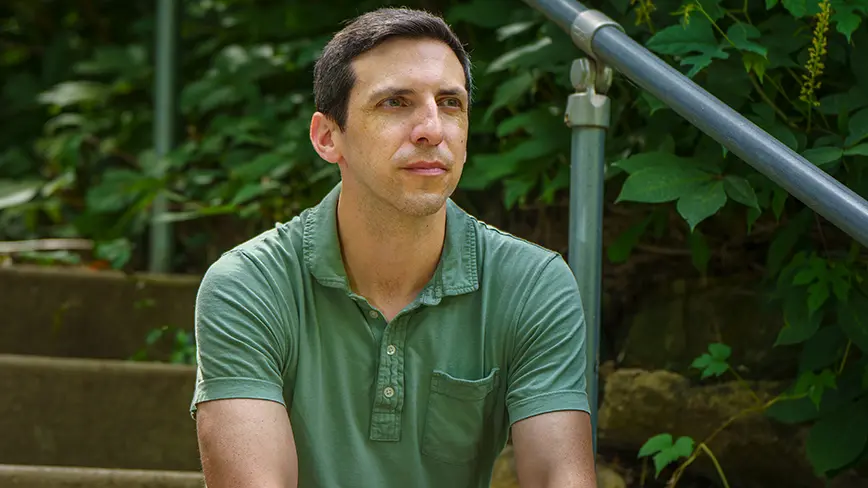P.G. Sittenfeld ’07 Pardoned by President Donald Trump
Sittenfeld, 40, had been facing the possibility of having to serve the rest of his sentence if his appeal failed at the Supreme Court
President Donald Trump granted a full pardon Thursday, May 29, to Alexander P.G. Sittenfeld ’07, the former rising star of Cincinnati politics whose 2022 bribery conviction had raised constitutional questions about the role of money in elections, according to a lawyer for Sittenfeld who requested anonymity.
The move was first reported by several new media outlets, including the Cincinnati Enquirer.
Sittenfeld has been free since last May, after serving about five months of a 16-month sentence in a federal prison camp. A federal appeals panel had ordered him released early, pending the outcome of his appeal, shortly after it heard arguments in his case. The quick release was seen by his supporters as a sign of the strength of the case for overturning the conviction — but in February the panel of judges voted 2-1 to turn down his appeal. At the same time, all three judges in their opinions cited the ambiguity of the law and invited the U.S. Supreme Court to review the matter and reconcile conflicting legal precedents.
Sittenfeld, who could not immediately be reached for comment, and his pro bono lawyers had been planning to petition the Supreme Court to take the case when news of the pardon broke Thursday morning. Until that moment, Sittenfeld, 40, faced the possibility of having to serve the rest of his sentence if his appeal failed at the Supreme Court. He and his wife have two children with a third on the way.
Sittenfeld, a Democrat, was among several figures whom Trump pardoned this week, including: former Republican congressmen Michael Grimm of New York, convicted of tax fraud; former GOP Gov. John Rowland of Connecticut, convicted of corruption-related charges; and hip-hop artist NBA YoungBoy, charged with gun-related crimes.
The pardon is the latest twist in a case that began in 2018 with what Sittenfeld has steadfastly maintained was an innocent conversation with a friend and developer who had played for the Cincinnati Bengals. The friend, Chinedum (Chin) Ndukwe, was recording the conversation for the FBI. Sittenfeld, a city councilmember who was considered the favorite to become the next mayor, was raising money for his campaign, and Ndukwe said he wanted to introduce the politician to two out-of-town developers.
The pair were, in fact, undercover FBI agents. Sittenfeld accepted $20,000 from one of them for his political action committee. He was convicted of receiving the money in an illegal quid pro quo for his support of a downtown development.
Legal experts said the case was unusual because the alleged bribe was for campaign funds, not personal enrichment, and Sittenfeld kept turning down the money when the agent offered it in forms that would violate campaign laws, such as cash or corporate money orders. The case raised the legally unsettled question of where the line is between a politician stating his political values to supporters and illegally promising action in exchange for support. Now, with Sittenfeld’s pardon, ambiguities in this area of law are likely to remain.
Since his trial and his months in prison — from where he wrote colorful accounts for friends and family about his new friends and activities in prison — Sittenfeld has set aside his political ambitions. He has said that he wants to be of service to others, and perhaps to pursue the nonfiction writing craft that he began as a student journalist at Princeton. In an interview with PAW last year, he said: “The biggest goals for my life are I want to be a deeply involved husband and father, and I want to be a committed Christian. And then, if I’m doing those two things, let whatever worldly path unfold.”











No responses yet